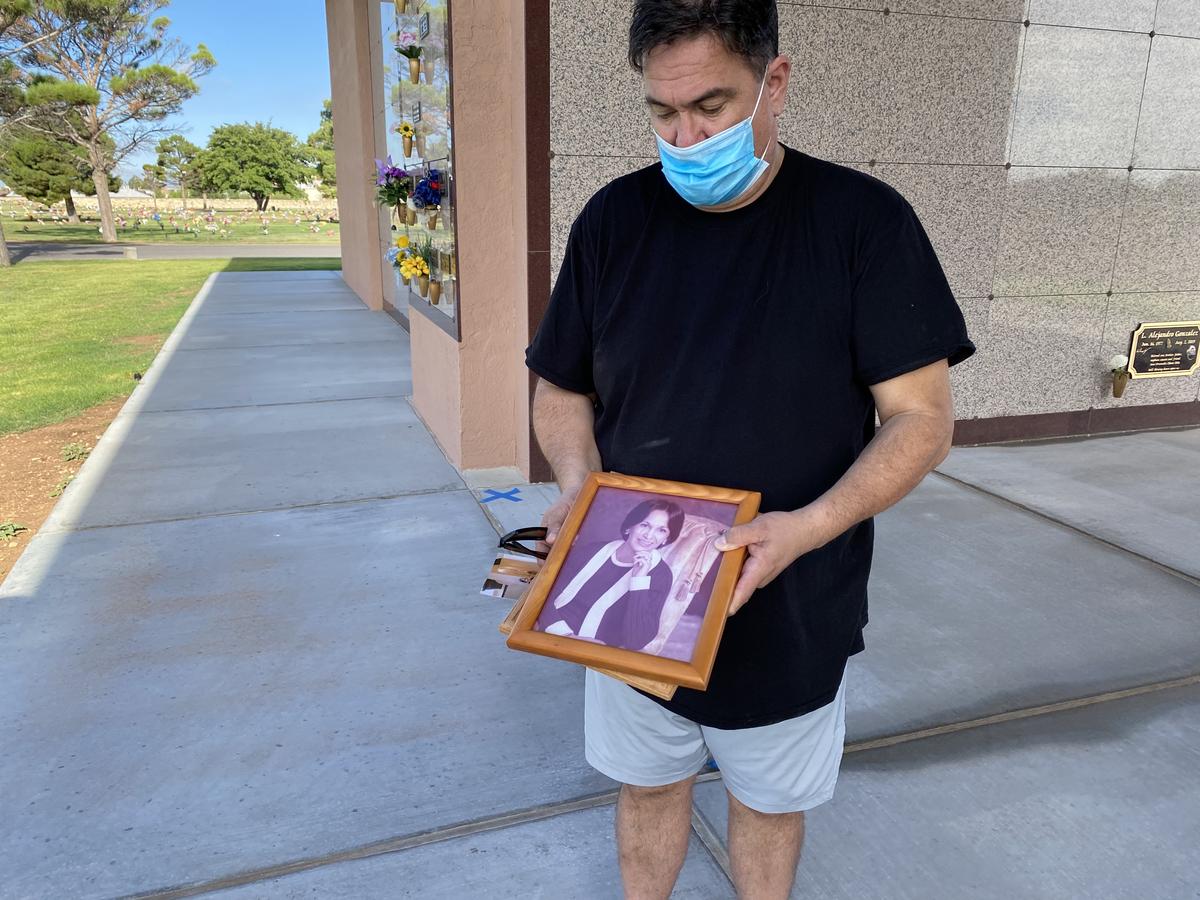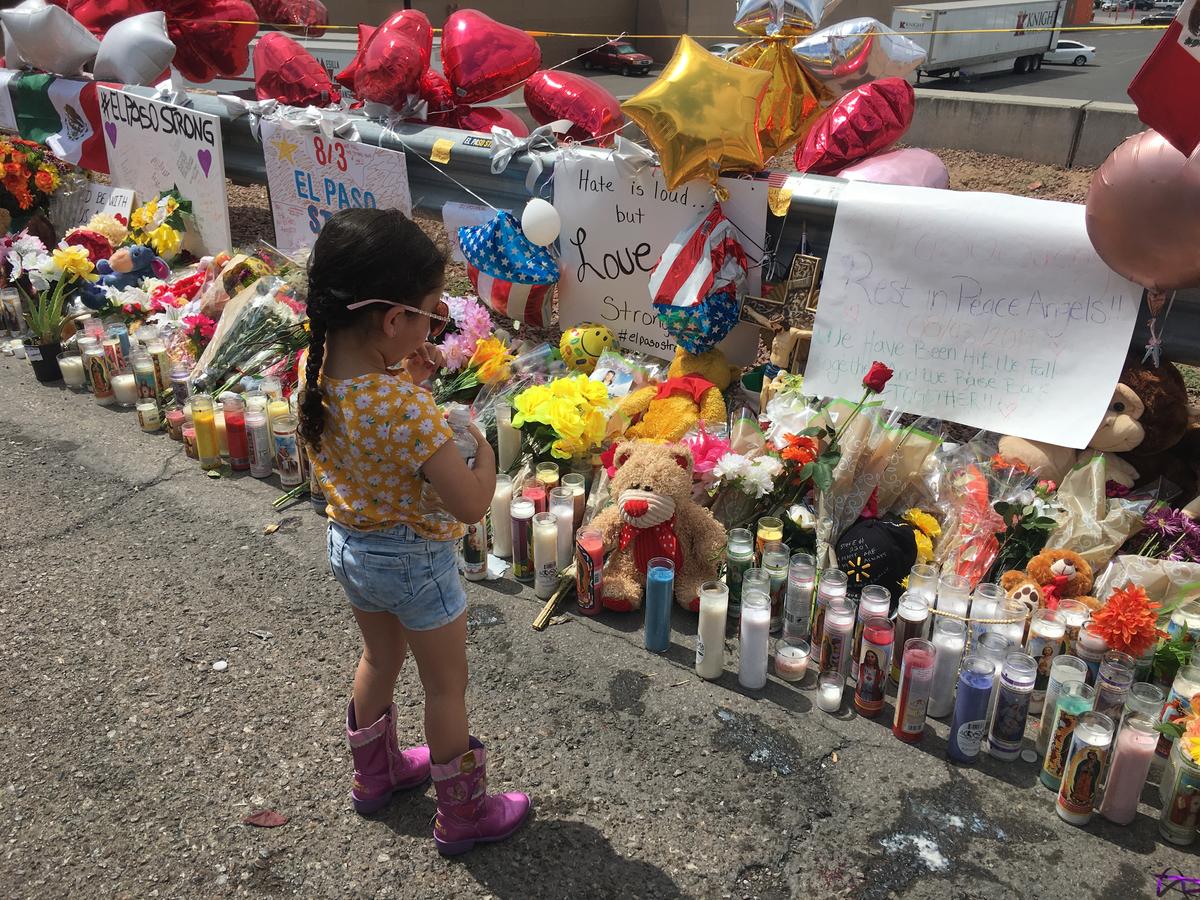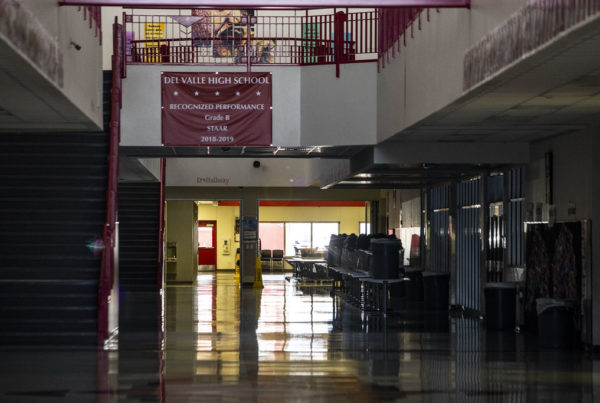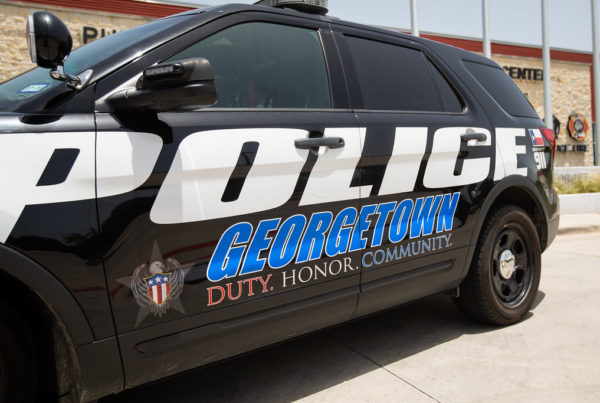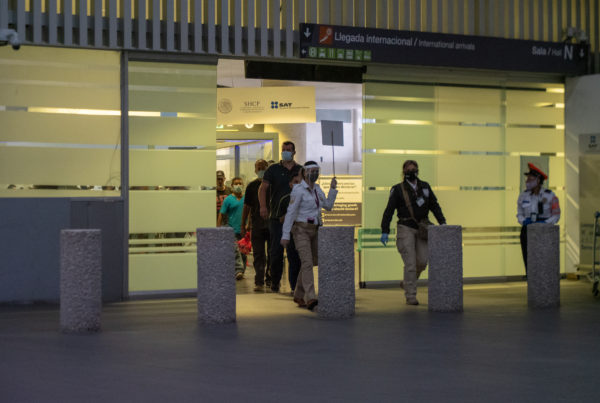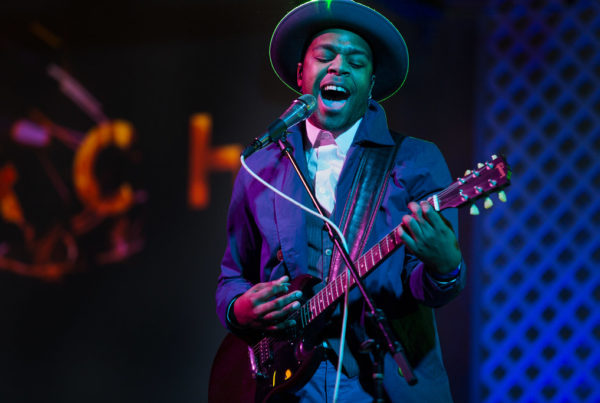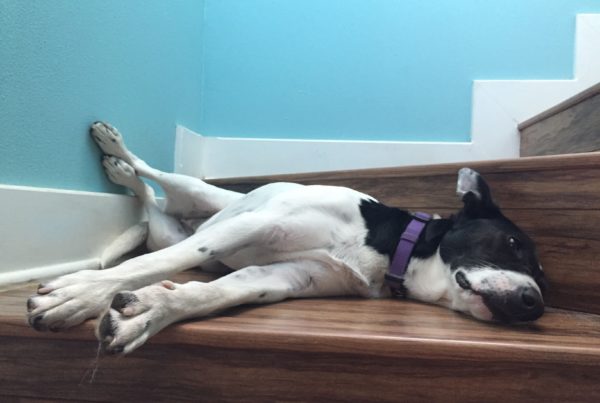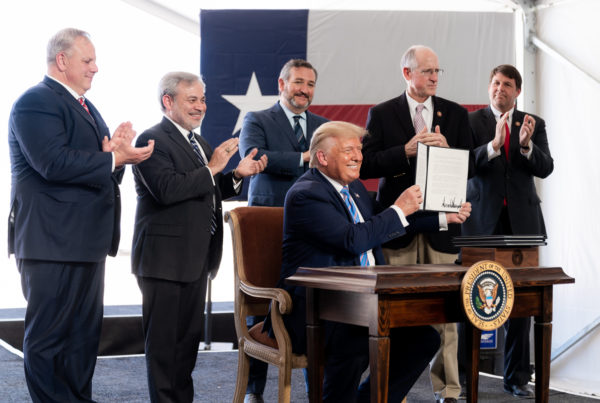From KTEP:
William Englisbee embodies the quiet strength of the city he calls home.
“Every day’s a struggle,” said Englisbee at Evergreen Cemetery east recently where he was paying respects to his mother. Angelina Maria Silva de Englisbee was among 23 people gunned down at an El Paso Walmart a year ago. She was 86.
He visits his mother’s final resting place multiple times a week. A man of few words, Englisbee’s eyes reflect his deep sorrow. The father of four relies on his faith and family to cope with profound loss. “That carries me through everything,” he said.
He’s had to deal with more than the tragic death of his mother this past year. A manager tasked with reopening several restaurants in El Paso and elsewhere in Texas, he tested positive for COVID-19 at the beginning of July..
“Yeah, I was sick. I was sick for about a week. A lot of the flu-like symptoms stuff like that,” he said.
After taking time off, he’s recovered and is not one to complain.
El Pasoans resilience has been tested time and time again the past few years. The Aug. 3 mass shooting, the largest attack on Latinos in modern U.S. history, was sandwiched between a humanitarian crisis as tens of thousands of migrant families arrived at the border seeking asylum and now the COVID-19 pandemic’s health risks and economic downturn.
“I get pretty punchy dealing with it,” said Mayor Dee Margo.
The mayor looks to the border city’s long history for inspiration that El Paso can withstand a series of potentially soul-crushing traumatic events.
“You know we’ve been here for over 350 years. We’ve been here 100 years before the United States was ever founded. And we’ve seen revolutions and wars. And we’ve survived it all. And I think we have a unique embedding in our DNA that’s part of the multi-generational culture we have here, that allows us to survive and not be vindictive and able to move forward. That’s all I can put my arms around,” he said.
The mass shooting was a hate crime. The accused gunman told police, as he was being taken into custody, that he came “to kill Mexicans.” Minutes before the attack, he also allegedly posted online a diatribe saying he wanted to “stop the Hispanic Invasion of Texas.”
El Pasoans tell you they know they were targeted because of who they are and where they live –the border. Who they are and where they live is also a source of strength.
“I think of the literally tens upon tens of thousands of refugees, immigrants that come into the Juarez El Paso border area and thousands of people stepped forward to volunteer. And that really is part and parcel of the character of what this community is like,” said Ruben Garcia, executive director of Annunciation House, a non-profit organization that provides temporary shelter and care for migrants and refugees.
El Pasoans responded to the humanitarian crisis by volunteering to provide meals and offering their churches as temporary shelters. The hate-filled August 3rd attack created unimaginable heartache. But Garcia said the now 22-year-old suspect from the Dallas area could not break El Paso’s spirit.
“This young man tried to snuff that out and I think El Paso’s response was, that isn’t going to happen. That’s not who we are. We are a people who will come back. We are, the word you use, is resilient.”


